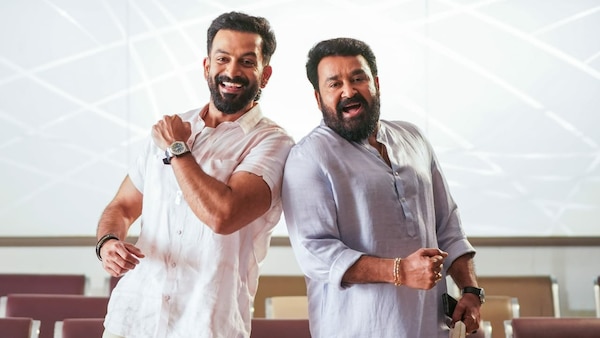Exclusive! Mohanlal: Prithviraj Sukumaran’s Bro Daddy is a humour-driven film that is aesthetically shot
Bro Daddy marks Prithviraj’s second directorial after Lucifer, which also had Mohanlal in the lead

Last Updated: 09.02 AM, Dec 07, 2021
The expectations had been sky high when Mohanlal and Prithviraj Sukumaran teamed up for the first time in Lucifer. The movie went on to rewrite box office records in Mollywood. In an exclusive interview with OTTplay, Mohanlal revealed the “mounting interest” was precisely the reason the duo decided to team up again for Bro Daddy.
For Mohanlal, the movie, which marked Prithviraj’s second directorial, also offered him a space to do a comedy during the pandemic – and that was a huge relief, he admits.
“It’s a feel-good entertainer. We enjoyed doing it. It’s a film that you cannot compare to Lucifer. If you shoot a humour-driven movie with visually-pleasing aesthetics, it comes out really well. In Malayalam, we haven’t done too many movies like that, again due to the budget. Also, when people think of Mohanlal-Prithviraj combination, Lucifer comes to their mind first and that generates an interest in the audience to watch Bro Daddy. That’s the chief reason we did the same,” he explains.
Bro Daddy, which is scripted by Sreejith N and Bibin Maliekal, also has Kalyani Priyadarshan, Meena Sagar, Jagadish, Lalu Alex, Soubin Shahir, Unni Mukundan, Kaniha and Kavya Shetty as part of the cast.
While Lucifer was a huge success when it released in theatres in 2019, Bro Daddy will be a direct-to-OTT release. The superstar says that he took the onus to make the movie for OTTs to keep the wheel of the industry turning during the pandemic by doing small films that majority of people can watch and enjoy, while also sustaining the interest.
“It’s the same with 12th Man too, because it has the team of Drishyam 2 (Jeethu Joseph and Mohanlal) and in turn will have an interest. Let there be a market for Malayalam cinema in OTTs too. The platforms will pick more movies from the language only if there are successful films coming out,” explains the superstar.
Read the entire interview: Exclusive! Mohanlal: If Marakkar was a ‘mass’ film, it wouldn’t have won National Awards

 Premium
Premium